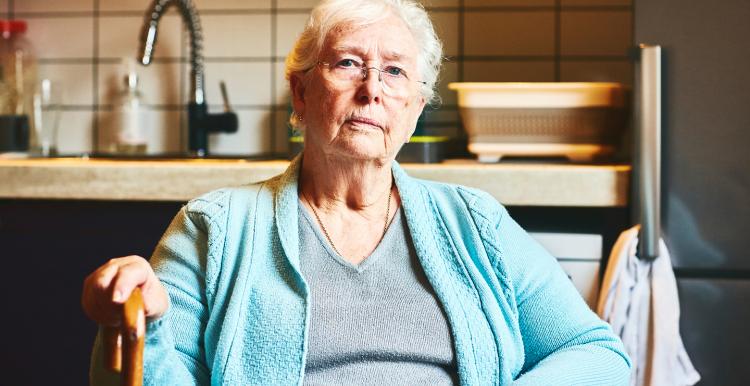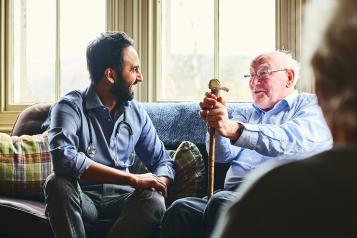Our position on Patient Transport Services

In February we met with representatives from Barnet Clinical Commissioning Group (the lead commissioner for Patient Transport Services for Barnet, Camden, Enfield, Haringey, and Islington CCGs) and the Royal Free London Foundation Trust (who oversee the call centre run by DHL). They took the time to address some of the concerns we have had with patient transport since DHL became the provider for local Trusts including the Whittington and Moorfields in September last year.
- We received a promising update about call centre waiting times. Calls are now being responded to within 3 minutes. This feels encouraging.
- It's also encouraging that the assessment process is getting quicker, down from 20 minutes to about 7 minutes per patient. However, patients have expressed frustration that they have to be reassessed each time they phone the service to arrange transport. Commissioners told us that this is necessary because people’s mobility may change over time, and that some patients are reassessed every three months, instead of each time they use the service, if they are more likely to continue to be eligible for transport. There are plans, based on our feedback, to reorder the questions to make the assessment process easier for patients. Patients are not convinced that going through an assessment every time is necessary, or a good use of time and resources.
Eligibility criteria need to be clearer
- Although commissioners state that there has been no change to eligibility criteria, many Islington residents who used to receive the patient transport service are now no longer getting it. Confusingly, if they are being transported to University College Hospital they may still be eligible for transport, as that service is commissioned separately.
- We were told that resources have to be prioritised for those in greatest need. Of course we understand that, but it does feel like people who have high levels of need are no longer eligible and because the criteria are not clear, we really can’t help people to challenge. This is quite concerning. Furthermore, we are not yet convinced that all eligible vulnerable residents are getting access.
- If you have a relative who can support you with shopping, it feels like there is an assumption in the assessment process that they can also help you get to the hospital. We don't feel that this is a safe or fair assumption to make. The assessment process needs to be more transparent.
- Family carers who used to be eligible are now being refused permission to accompany vulnerable relatives on patient transport. This can be very distressing for patients. We understand that some decisions have been reversed on appeal, which illustrates the need for greater clarity around eligibility for carers.
'My son has a long term health condition and has attended a specialist clinic at the Whittington Hospital for several years. He suffered a stroke last year and was an inpatient at St Pancras Hospital up until being discharged in February. As Whittington were regaining responsibility for his care, they asked him to attend the hospital for a test. Despite the short notice, the staff at St Pancras were able to arrange Patient Transport, but I was told quite firmly that I was not allowed to travel with him. It seems ridiculous that the transport operator does not appear to value the services of a relative who is willing to push a wheelchair, nor appreciate that many patients will suffer anxiety when forced to travel unaccompanied.'
More work needs to be done to make the service accessible to all
- The DHL call centre is not accessible to patients who do not use the phone, for example Deaf patients, or patients with brain injuries that affect speech. Not everyone has a relative who can make the call on their behalf.
- We understand that texting will become an option, and clinicians will be able to help as well. However, alternatives to phoning the call centre should have been in place from the outset. We feel that the needs of residents with communication support needs have not been adequately considered.
- There was a suggestion from the representatives that we met with that Trusts can't pre-empt needs, because they have limited resources. We do not feel that this is in the spirit of existing equalities legislation and shows that the Equality Impact Assessment probably didn't involve a diverse enough range of knowledge. Currently if someone cannot access the patient transport service, they can complain - but we know that these patients are also less likely to have access to complaints processes.
Consistency across North Central London
With the merging of the Clinical Commissioning Groups from Barnet, Camden, Enfield, Haringey, and Islington, larger scale commissioning of services will become the rule. There was a lot of emphasis on consistency in the conversation we had. In the case of Patient Transport Services, this feels like bad news for Islington, because this consistency equates to a reduction in what will now be available to our residents.


